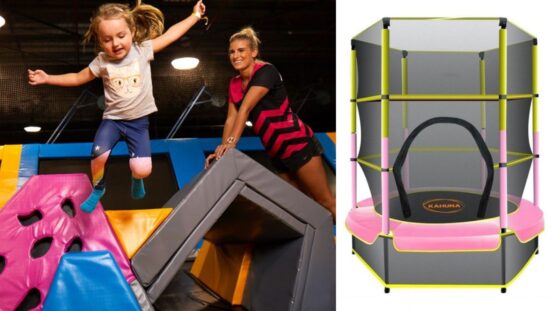Australian hospital patients risk severe allergic reactions to their meals
"Someone will die if this continues and I am genuinely worried"
Australia has one of the highest rates of food allergy in the world with food allergy affecting 1 in 10 babies, 1 in 20 children aged 10-14 years and 1 in 50 adults.
Whether a person goes into hospital in an emergency or for a planned procedure, it is important that they are provided with meals that do not contain the food they are allergic to.
To help hospitals provide appropriate meals to patients with food allergies, the National Allergy Strategy has developed the first nationally standardised training for food allergen management in hospitals.

Hospitals, like any other food service, must be able to cater for people with food allergies.
Sadly, we know that hospitals don’t always get it right and allergic reactions including severe allergic reactions (known as anaphylaxis) have occurred. This is the experience of one family from Brookfield:
“In Aug 2018 my 4-year daughter Chloe Henderson (allergic to egg) was medevac’d by Careflight to a hospital. She had severe croup and was escorted by her father David, as I was still breastfeeding our 14mth old and was not able to go on the plane. We don’t have much trust in hospitals preparing foods as this was not the first time we’d had concerns about the food at the hospital where she was taken to, however this time was worse as the hospital provided a hard-boiled egg cut in half on her plate!”

Despite having an egg allergy, 6yo Chloe was served boiled egg in hospital and food where the ingredients could not be properly identified.
“My husband immediately stopped her from eating it and told me about it. He sent me a photo image of it and thankfully he checked her meal and was not in the shower or anything at the time. He told the nurse straight away about it,” says Chloe’s mum.
“I had warned my husband to check thoroughly before he left on the Careflight plane and I made sure I packed her EpiPen and antihistamines etc and a few egg free snacks. A year ago she was admitted to the same hospital for croup also and she was served some type of battered fish fingers and the nurse couldn’t confirm for sure there was no egg so I wouldn’t let her eat it and she was offered a sandwich.”

Whether a person goes into hospital in an emergency or for a planned procedure, it is important that they are provided with meals that do not contain the food they are allergic to.
“Her allergy was disclosed, she had a red ankle band on, a white board with her allergy on it behind her bed AND she had been admitted to the hospital before with her allergy. She was admitted to hospital by ambulance approx 7:45am, spent time in resus, then paediatric unit until eventually sent to children ward at about 12:30pm. Nobody gave any menu card to my husband, however the nurse did put the ankle band on and write on the white board in the room.
“There is clearly something wrong with the hospital’s system. Someone will die if this continues and I am genuinely worried.”
WATCH: New Jersey Boy, 11, Dies from Apparent Allergic Reaction Seemingly Prompted by Smell of Cooking Fish. Continues after video …
Managing food allergies in food service is a shared responsibility – consumers must declare their food allergy, food service providers must serve meals that do not contain the food the person is allergic to, and those who audit food service premises must check the right processes are in place to manage food allergies, including staff training.
In developing the All about Allergens for Hospitals, a free online training course, the National Allergy Strategy engaged with key stakeholder organisations to ensure the content would meet the needs of the staff completing the training and improve safety around appropriate meals being provided to patients with food allergies.
Hospital staff want to do the right thing by patients, but in order to do this, they need access to the right training and resources. The All about Allergens for Hospitals online training is available free of charge and provides evidence based best practice information to support hospital staff. There are four different courses based on the needs and responsibilities of hospital staff:
- Kitchen managers and supervisors – includes information about best practice procedures for food allergen management in the kitchen.
- Kitchen staff – includes information about how to safely prepare meals for patients with food allergy, including food storage, meal plating and meal delivery.
- Ward managers and nurses – includes information about managing patients with food allergy on the ward and understanding the processes needed to ensure that the right meal is delivered to the right patient with food allergy.
- Ward support staff – includes information about food allergy and how to manage patients with food allergy on the ward.
The National Allergy Strategy has developed additional supporting resources such as sample policies and audit tools, which are also freely available from the online training website.

To help hospitals provide appropriate meals to patients with food allergies, the National Allergy Strategy has developed the first nationally standardised training for food allergen management in hospitals.
All about Allergens for Hospitals is the latest course to be added to the National Allergy Strategy online training for food service providers and can be accessed from www.foodallergytraining.org.au
Parents of children with food allergy can also find information about how to choose, store and prepare food safely (including practical videos).
The National Allergy Strategy is a partnership between the Australasian Society of Clinical Immunology and Allergy (ASCIA) and Allergy & Anaphylaxis Australia, the peak medical and patient support organisations for allergy in Australia. The National Allergy Strategy was launched in 2015 and aims to improve the health and quality of life of Australians with allergic diseases, and minimise the burden of allergic diseases on individuals, their carers, healthcare services and the community.




